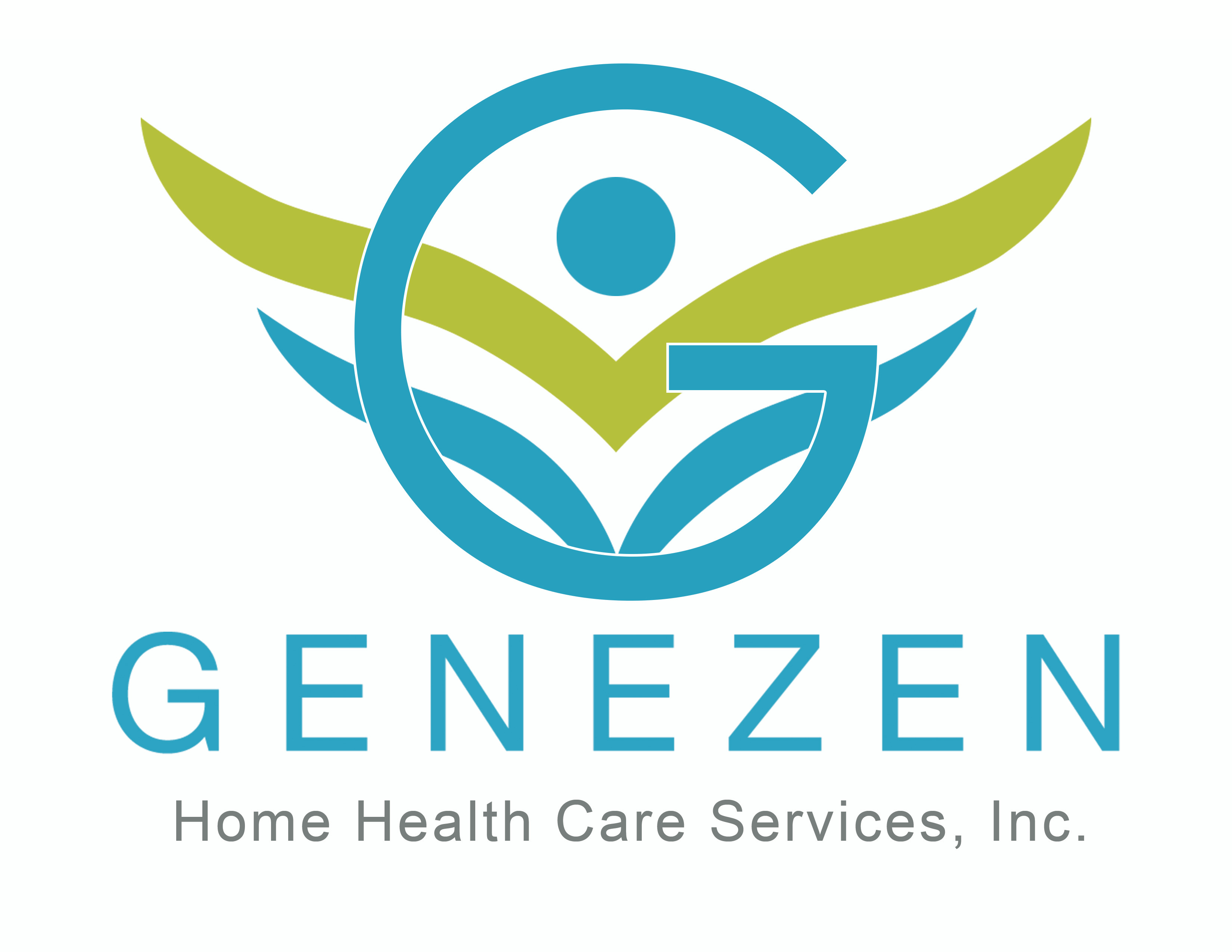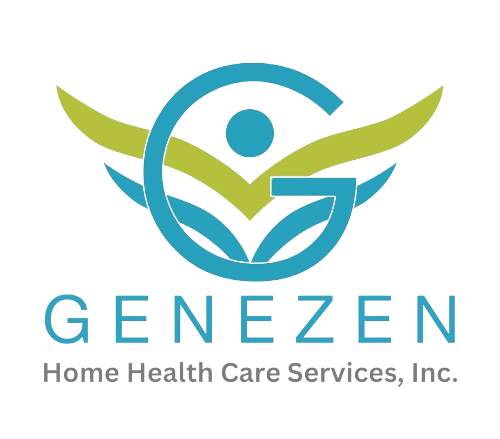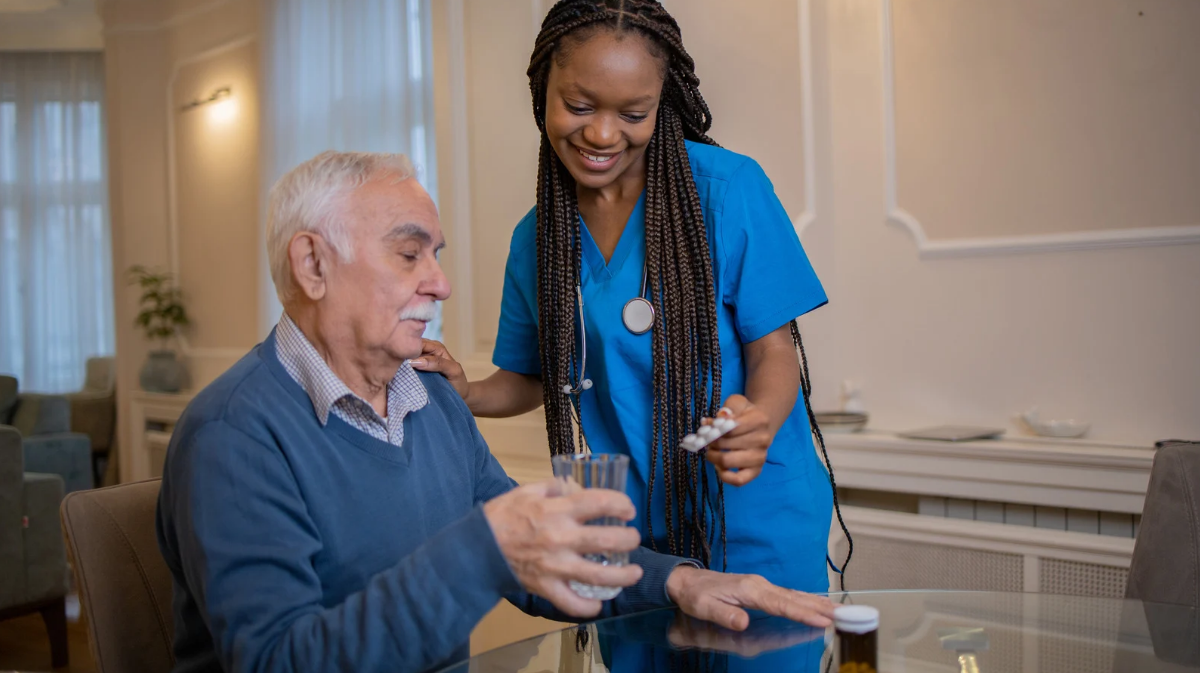For many families, the idea of receiving advanced medical care at home feels almost too good to be true. Yet today, skilled nursing at home has become a trusted solution for patients who need professional clinical care but prefer the comfort, familiarity, and dignity of their own space.
From post-surgical recovery to chronic disease management, highly trained nurses now bring hospital-level care into living rooms and bedrooms, helping patients heal without the stress of long hospital stays. If you’re wondering how this works, what services are included, and whether it’s right for your loved one, this guide will walk you through everything you need to know.
What Is Skilled Nursing at Home?
Skilled nursing at home is professional, medically necessary care provided by licensed nurses in the patient’s residence. Unlike personal care (such as help with bathing or cooking), skilled nursing involves specialized clinical services prescribed by a physician.
Key difference:
- Home care provides non-medical support (companionship, daily tasks).
- Skilled nursing involves clinical expertise—medication management, wound care, disease monitoring, and more.
In short, skilled nursing ensures that people with complex medical needs can still recover and thrive at home with the right professional oversight.
Who Provides Skilled Nursing at Home?
Skilled nursing services are delivered by:
- Registered Nurses (RNs): Hold advanced training, provide assessments, administer medications, and coordinate care with doctors.
- Licensed Practical Nurses (LPNs): Support RNs with treatments, monitoring, and direct patient care.
Both are licensed professionals who follow a physician’s care plan. They often collaborate with physical therapists, occupational therapists, and social workers to give patients a well-rounded recovery plan. This multidisciplinary approach means patients receive both medical treatment and the support needed for long-term stability.
Services Included in Skilled Nursing Care at Home

Patients often wonder: What exactly can skilled nurses do at home? The scope of services is wide and tailored to each patient’s medical condition.
Some of the most common services include:
- Medication management: Administering injections, IV therapy, and ensuring safe dosages.
- Wound care: Cleaning, dressing, and monitoring healing, especially after surgery.
- Post-surgical recovery: Monitoring for infections or complications, ensuring smooth healing.
- Chronic disease management: Supporting conditions such as diabetes, heart failure, and hypertension.
- Respiratory care: Managing oxygen therapy, nebulizers, and tracheostomy care.
- Catheter and ostomy care: Proper maintenance to prevent infection and discomfort.
- Pain management: Monitoring pain levels and coordinating with physicians for effective relief.
- Patient and family education: Teaching loved ones how to support ongoing care safely.
This level of clinical care bridges the gap between hospital treatment and independent living, making recovery less stressful and more effective.
Conditions That Benefit Most From Skilled Nursing at Home
Not everyone requires hospital stays for treatment. Skilled nursing is often recommended for people who:
- Recently had surgery: Ensures incisions heal correctly and prevents post-op complications.
- Experienced a stroke: Nurses monitor progress, prevent infections, and coordinate rehabilitation.
- Live with cardiac conditions: Skilled monitoring of blood pressure, medication, and heart health.
- Have respiratory illnesses (COPD, pneumonia): Support for breathing treatments and preventing flare-ups.
- Manage diabetes: Blood sugar monitoring, insulin administration, and dietary guidance.
- Receive cancer care or palliative support: Symptom relief, medication management, and comfort measures.
By keeping patients stable at home, skilled nursing helps reduce unnecessary readmissions to hospitals.
Benefits of Skilled Nursing Care at Home
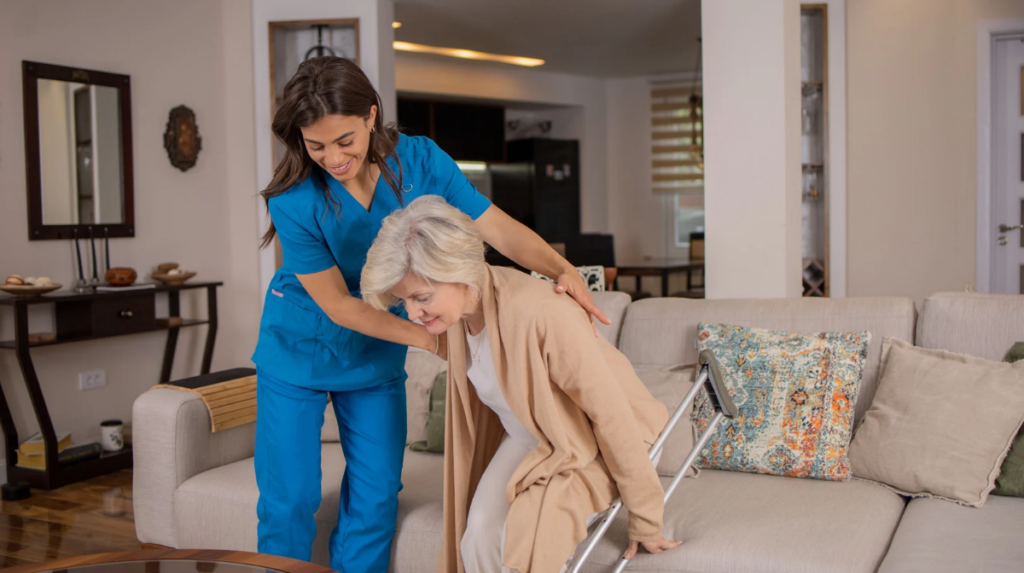
Why do so many families choose in-home skilled nursing instead of extended hospital care? The benefits are both practical and emotional:
- Comfort of Home – Familiar surroundings reduce stress and promote healing.
- Lower Risk of Infections – Hospitals expose patients to more infections; home care minimizes this risk.
- Personalized Attention – One-on-one care allows nurses to focus fully on the patient’s needs.
- Family Involvement – Loved ones can actively participate in recovery without restrictions.
- Cost Savings – Typically less expensive than long-term hospital or nursing facility stays.
- Faster Recovery – Patients often recover quicker in a stress-free, supportive environment.
These advantages make skilled nursing a preferred choice for patients and families seeking both medical excellence and quality of life.
Skilled Nursing vs. Hospital Care: What’s the Difference?
A common question is whether skilled nursing at home can truly match hospital-level care. The answer lies in understanding both strengths and limitations.
- What’s possible at home: Medication administration, wound care, IV therapy, chronic disease monitoring, post-surgical support.
- What requires hospital care: Surgeries, emergency interventions, or advanced imaging/testing.
Thanks to home medical equipment and visiting specialists, the gap between home and hospital has narrowed. Still, patients with critical conditions may need hospitalization, while those with stable but complex needs thrive with home-based nursing.
How Skilled Nursing Works Day-to-Day
Here’s what families can expect when skilled nursing begins at home:
- Initial assessment: The nurse evaluates medical history, current condition, and environment.
- Care plan development: A personalized plan is created in consultation with the physician.
- Regular visits: Frequency varies—daily, weekly, or multiple times a day depending on the condition.
- Ongoing monitoring: Nurses record vital signs, progress, and symptoms.
- Adjustments as needed: Care plans are updated as the patient improves or new needs arise.
This structure ensures continuous communication between patients, families, and medical teams.
Safety and Quality Assurance in Home Skilled Nursing

Safety is the top concern when advanced care moves outside the hospital. Skilled nursing follows strict protocols to maintain quality care:
- Infection control: Proper sanitation, PPE use, and sterile procedures.
- Medication safety: Double-checking dosages and preventing drug interactions.
- Licensing and oversight: Nurses are state-licensed and agencies are regulated.
- Accreditation: Many providers follow standards set by organizations like The Joint Commission.
These safeguards ensure that patients receive professional, hospital-level care right at home.
How Families and Caregivers Are Involved
Unlike in hospitals where family participation is limited, skilled nursing at home encourages loved ones to be active partners.
- Education: Nurses teach caregivers how to handle basic tasks safely.
- Emotional support: Families feel more connected to the recovery process.
- Shared responsibility: Care is not solely on the nurse; families gain confidence in providing everyday help.
- Relief for caregivers: Skilled nurses handle the medical complexities, giving families peace of mind.
This collaborative model strengthens both patient outcomes and family resilience.
Cost of Skilled Nursing at Home
Finances often determine whether families pursue home-based care. Costs vary depending on:
- Frequency of visits (daily vs. weekly).
- Level of care required (basic monitoring vs. advanced clinical interventions).
- Location and provider experience.
Insurance coverage:
- Medicare and Medicaid often cover skilled nursing if deemed medically necessary.
- Private insurance may also include in-home services, but benefits differ by plan.
- Out-of-pocket costs can arise for services not covered by insurance or for extended care.
In most cases, skilled nursing at home proves more affordable than hospital stays or long-term nursing facilities.
Common Questions People Ask About Skilled Nursing at Home

1. How do I know if my loved one qualifies?
A physician’s order is typically required. If the patient has a condition that requires professional nursing, they likely qualify.
2. What’s the difference between skilled nursing and private duty nursing?
- Skilled nursing: Short-term, medically necessary care prescribed by a doctor.
- Private duty nursing: Long-term, often 24/7, and may include both skilled and non-skilled care.
3. Is home care safe for someone with complex medical needs?
Yes—if the provider is licensed and follows strict medical protocols.
4. How long can someone receive skilled nursing services?
Duration depends on the patient’s condition. Some need short-term post-surgery support, while others require ongoing management.
5. Can skilled nursing be combined with physical or occupational therapy?
Absolutely. In fact, many home health programs integrate nursing with rehabilitation services for comprehensive recovery.
Choosing the Right Skilled Nursing Provider
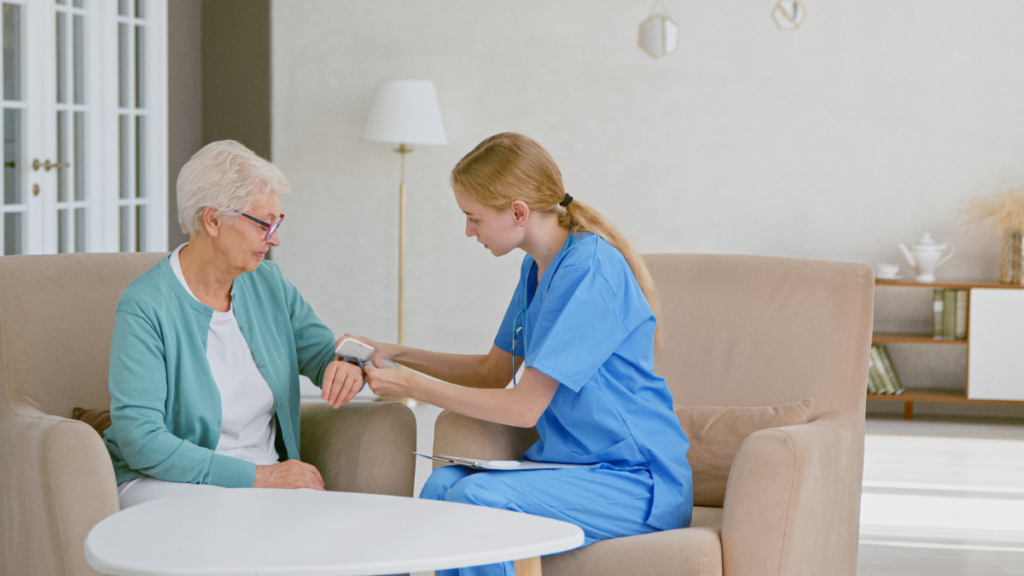
Not all providers are equal. Families should carefully evaluate their options before choosing.
What to look for:
- Proper licensing and certifications.
- Positive reviews and patient testimonials.
- Experience with specific medical conditions.
- Clear communication and availability.
Questions to ask providers:
- What services are included in your skilled nursing program?
- How do you coordinate with the patient’s physician?
- What is your emergency protocol?
- Are your nurses trained for specialized care (e.g., wound care, IV therapy)?
Red flags:
- Lack of transparency in costs.
- No formal care plan.
- Poor communication with families.
Selecting the right provider ensures not only quality care but also peace of mind.
Final Takeaway: Healing at Home with Confidence
Skilled nursing at home proves that advanced medical care doesn’t always require a hospital bed. With licensed professionals, personalized care plans, and family involvement, patients can recover safely and comfortably in the place they cherish most—their home.
Whether managing chronic illness, recovering from surgery, or needing close monitoring, skilled nursing brings dignity and healing into everyday life. For families, it offers something priceless: the reassurance that loved ones are cared for with both clinical expertise and human compassion.
This kind of care becomes even more meaningful when provided by teams who value both medical excellence and human connection. Genezen Home Health Care, located in Mission Viejo, is dedicated to bringing that balance into every patient’s home. Their licensed professionals work hand-in-hand with physicians and families to design personalized care plans that support safety, healing, and dignity. With a humble approach rooted in compassion, Genezen ensures patients receive attentive clinical support while families gain peace of mind. To learn more or discuss tailored skilled nursing services, they can be reached at (949) 380-6930.
